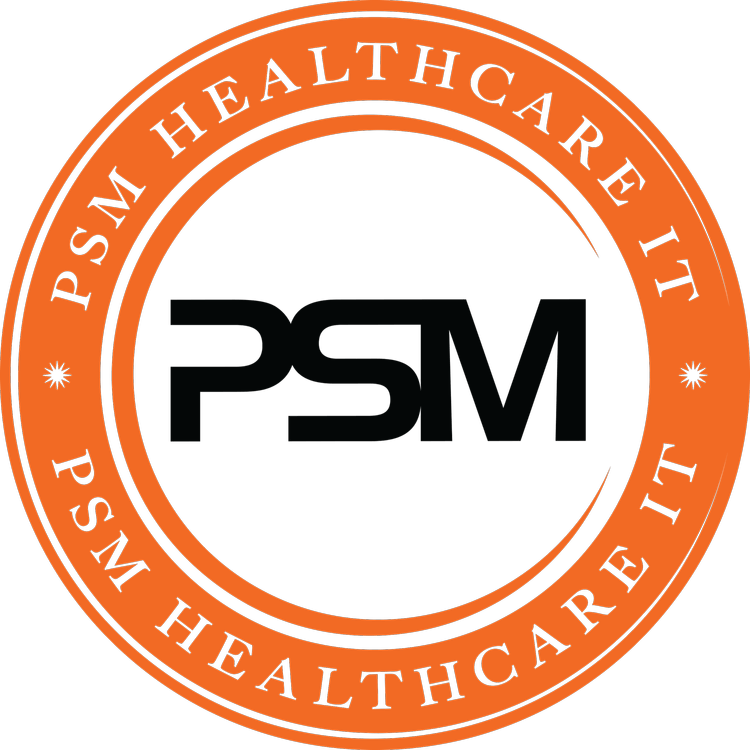-
-
What makes San Jose a top location for healthcare IT companies?
-
How do healthcare IT companies in San Jose address local healthcare needs?
-
What should I look for when choosing a healthcare IT partner in San Jose?
-
How do San Jose healthcare IT companies ensure patient data security?
-
What role does human-centered design play in San Jose healthcare IT?
-
Can a San Jose healthcare IT company support rapid tech changes?
-
Key Takeaways
-
Patient trust is earned with open communication, robust data protections, and a devotion to privacy from San Jose healthcare IT companies.
-
HIPAA compliance is still the law of the land, and involves continuous auditing, training and strict data protection to protect patient rights.
-
Your investment in solid cybersecurity will help you avoid expensive breaches, safeguard sensitive health information and retain patient trust.
-
With seamless interoperability and secure cloud-based integration, local providers can deliver trusted, accessible, and efficient care across healthcare networks in San Jose.
-
Customized IT services specifically designed for the San Jose area can optimize healthcare delivery by breaking down barriers to care, simplify provider workflows, and significantly boost patient communication.
-
Partnerships between Silicon Valley innovators, local healthcare organizations, and trained pros spurs its progress — navigating the delicate balance between innovation, compliance, and patient safety.
A healthcare IT company San Jose assists nearby clinics, hospitals and health groups leverage digital assets to track patient info, maintain records protected and operate day-to-day activities fluid. Most of these firms develop custom apps, configure secure networks, and provide rapid tech support tailored to the demands of Bay Area medical professionals. San Jose’s combination of world-class hospitals and tech talent offers these firms a powerful foundation to reinvent how care teams exchange records, monitor treatment, and comply with state and federal regulations. With healthcare zooming along here in Silicon Valley, IT firms tend to be early adopters of new technologies such as cloud platforms and mobile applications. The following passages illustrate how these services operate.
Beyond The Code
San Jose healthcare IT companies don’t just code. They are instrumental in cultivating trust, achieving compliance, safeguarding revenue, and maintaining seamless health systems for patients and providers alike.
1. Patient Trust
Patient trust defines the fate of any healthcare IT platform. Open conversation about how patient information remains secure, combined with plain language in privacy policies, fosters confidence. Secure messaging systems allow patients to easily talk with doctors, knowing their info is locked down. Local clinics and hospitals that prioritize patient privacy demonstrate that they care about more than just care—they care about personal dignity, as well. When staff take responsibility and adhere to rigid data protection, it raises the standard for everyone.
2. Legal Mandates
HIPAA rules is what local IT companies live by. If a company violates these regulations, penalties can be as high as $250,000 per violation, and individuals can be prosecuted to the point of serving a decade in prison. Ongoing testing and audits find vulnerabilities and help keep all of us accountable. Regular training ensures employees understand what’s at risk and haven’t been left behind by new regulations. Keeping up to code isn’t only clever–it’s mandatory.
Staying on top of these legal requirements is a must in order to protect both patient rights and a company’s viability going forward. They put open those doors and save expensive lawsuits.
3. Financial Stakes
One data breach can cost a local practice or hospital a fortune—lawsuits, lost business, and the hard-earned trust of patients. Spending on good email filters, antivirus and other such tools is money well invested. It’s a lot less expensive to prevent an issue before it begins than pay for a cure after the harm. Safe telehealth saves cash and patient confidentiality, enabling clinics to reach more with less concern.
4. Operational Integrity
Close cloud services make it easier for providers to share information quickly and securely. Robust system security has tech humming so patient care is never interrupted by a glitch. Local clinics brainstorm with others in San Jose to exchange ideas and stay sharp. Simple measures—such as password updates or access audits—go a long way to keeping things running smoothly.
A great IT plan keeps everyone centered on care – not computer headaches.
5. Future-Proofing
Looking ahead is choosing products that pop with San Jose’s evolving medical community. With AI, telehealth apps and custom software to boot, clinics could adapt quickly and keep pace with emerging demands. IT teams track trends, always ready to tweak their approach to what’s next.
Silicon Valley’s Mandate

Silicon Valley is a key driver of healthcare IT. San Jose, smack dab in the middle of this area, takes the lead blending its deep tech heritage with a mission to save lives with intelligent health. It has developed a special niche where health care IT firms can collaborate with regional hospitals, clinics and government organizations to address the demands of a rapidly evolving health care market.
One obvious element of Silicon Valley’s mission is the push for novel technology that can disrupt patient care. The proliferation of electronic health records (EHRs) is one highlight. EHRs have helped slash malpractice claims by 84% nationwide, due to more comprehensive, legible charts. EHRs are now ubiquitous in San Jose, allowing physicians to instantly access a patient’s medical history, allergies, or prior visits. This reduces waiting and errors, translating into more efficient care for all. Many clinics use EHRs to send reminders, refill prescriptions, or share lab results, making things easier for patients and staff alike.
Collaboration is another huge piece of the puzzle. Silicon Valley startups team up with big health groups and even local regulators. These collaborations accelerate the introduction of tools such as AI-driven diagnostics, assisting physicians in identifying issues more timely and precisely. For instance, local teams are building applications that use machine learning to flag risky health trends, so patients receive care before things escalate. These initiatives are important not only for innovation but for complying with rigorous Californian regulations such as HIPAA and CCPA, which establish elevated standards in privacy and information usage.
Cybersecurity is another key worry. San Jose-based companies labor to secure patient information, implementing robust encryption and frequent security audits. The more digital tools are in play, keeping data private is central to the trust. The local emphasis on security ensures that patients can trust their records are treated respectfully.
Localized Solutions
Healthcare in San Jose presents unique requirements. With the region’s unique mix of diversity and velocity, clinics and hospitals require IT solutions that address genuine, local issues. Local healthcare IT firms begin with the fundamentals—considering what patients and providers here desire most. That translates to quicker entry, hassle-free check-ins and a system that complies with California’s strict privacy laws.
Partnering with local health systems is critical. Firms collaborate with local hospitals and clinics to construct IT platforms that really communicate. This allows physicians to share patient charts, test results and treatment plans, with less friction. These platforms dissolve traditional walls, allowing intelligence flow secure and swiftly to its point of purpose. Data flows in real time, so care teams can make smart decisions without waiting days for information to catch up. Over 70% of San Jose providers are now investing in digital technology, an increase that’s enabling care teams to collaborate and prevent errors.
Access to care in San Jose has become more convenient due to local telehealth and patient portals. With these, patients can schedule appointments, view laboratory results, and communicate with physicians digitally. It has made a big dent in missed appointments—some local clinics have seen no-shows drop by 50%, due to reminders sent out by their systems. These IT tools allow more patients to receive care who may not otherwise make it into the office, from busy parents to hard-to-schedule tech workers.
Software designed to match how San Jose clinics really operate goes a long way. Local developers collaborate with hospital personnel to chart daily activities, then construct tools that align. These systems reduce on paperwork, so physicians and nurses have more time with patients. A few clinics here have experienced as much as 30% additional work performed after migrating to these IT solutions. With improved data sharing, physicians could adapt care to each individual’s needs — rendering consultations more intimate and less hectic.
The Innovation Dilemma
In San Jose, healthcare IT companies face a real test: how to push new ideas while sticking to strict rules like HIPAA. This is the innovation dilemma—that moment when there’s a disconnect between what tech teams conjure up and what patients and staff actually need. Clayton Christensen, a favorite thinker, noted that even clever companies can fail spectacularly when they don’t completely understand this gap. In health care, this translates to small improvements—such as a new app feature or a modestly speedier portal—don’t necessarily address the larger issue of serving patients.
New tech in healthcare, from EHRs to telehealth, brings promise and peril. To introduce a new system too fast can result in data leaks or skipped care. Compliance isn’t a checkbox. HIPAA regulations imply that all patient records, texts and data have to be secured. If a team scrambles to adopt a new tool without verifying its security, it could result in expensive errors or breaches. Slow too, however, and you leave clinics behind, mired in legacy tools that anger staff and patients alike.
One genuine problem is that patients aren’t always able to articulate what they desire from new technology. Occasionally, even they don’t know until they see it. For instance, nobody requested online appointment booking until it appeared and simplified their lives. That leaves healthcare IT companies scrambling to recruit patient advocates—folks who can speak and help mold new tools. Identifying the proper champions that will articulate what many patients experience is difficult.
To hit that balance, San Jose companies are thinking beyond what the newest gizmo could accomplish. They’re conducting feedback sessions and pilots and engaging local patient groups. This lets them vet if a concept is politically safe, legal and addresses actual demand. Yet, there’s no magic universal solution. The innovation dilemma requires teams to view every problem from multiple perspectives. Which is to say, listening, testing, and being prepared to pivot if necessary.
Vetting Local Partners
Vetting a healthcare IT company in San Jose means a combination of skills and trust and local fit. First, establish firm criteria for a good partner. Center around their familiarity with HIPAA and CCPA, because both are pivotal for data security in California. A local partner should demonstrate that they comprehends not only federal laws, but what is specific about healthcare in San Jose. This can include understanding how local clinics, hospitals or doctor groups operate on a daily basis.
Dig into their security track record. Inquire about the measures they employ to protect patient information. For instance, some quality partners employ multi-factor login, 24-hour system monitoring and consistent updates to patch vulnerabilities. See if they’ve experienced data leaks or cyber attacks in the past. If so, find out how they set things right and what they learned. A quality company isn’t going to bury their previous problems, they are going to demonstrate that they improved.
Seek partners who continue learning. Tech and threats change fast, so strong partners send their teams to training on new risks, tools, or best ways to spot a scam. Ask for proof: do they hold workshops, get new certificates, or join local IT groups? This demonstrates they’re interested in leading.
A partner’s fit for San Jose is important as well. Local providers want someone who understands their day to day needs. Perhaps your clinic operates a bustling telehealth service or requires a tailored EHR configuration. A quality local partner will demonstrate tangible examples of their footprints on the ground, such as assisting a hospital to integrate the old with the new or ensuring a practice’s software is both HIPPA and local needs compliant.
See how effective they are at getting your staff up to speed on new tools. The best partners provide support all the way through, not just at the beginning. They provide training, troubleshoot, and solve problems quickly. Inquire into their support plans and who you call if something breaks.
Finally, check out their track record. Request referrals, review comments and consult with other members of the San Jose medical community. A good partner should have a great history of great work, happy clients and low attrition.
The Human Element
The human element lies at the core of each e-health care IT firm in San Jose. Even though shiny new tech can track patient information, automate to-dos and more, it’s still humans—personnel and patients alike—who define how these systems function in practice. It’s not just about technology or software, but about teams who are well trained in how to identify risks, secure data, and apply these systems in a real-world healthcare environment. Highly trained professionals are involved in protecting patient information, ensuring records are secure. With cyber threats becoming more sophisticated, ongoing training is a necessity. Basic measures, such as training employees to identify phishing emails or use complex passwords, go a long way. A few clinics in San Jose even hold monthly workshops on cybersecurity and best ways to use digital records, keeping their teams sharp and prepared.
Open talk is important as well. When physicians and nurses slow down and explain how patient information remains secure, it earns trust. Bay Area patients are tech-savvy, with a lot of them wanting transparency and privacy — clear answers on where their info goes and who can see it. Clinics that are transparent about digital records and privacy have greater patient satisfaction. They receive less security grumbling, because people feel listened to and valued. Open lines of communication help all of us function as a team, ensuring that no one feels excluded.
How you take care of yourself still matters even when so much of your work goes on virtually. Tech shouldn’t supplant face-to-face talks, it should afford staff more time for real care. Take, for instance, the San Jose clinics with their online portals for rapid triage, but still open doors for challenging cases. This blend personalizes and slows down care. In fact, human factors experts emphasize empathy and listening in constructing new systems. Where staff feel supported and seen, turnover drops and teams function more effectively. This culture, forged around the human element, allows clinics to attract best-of-breed talent and ignite innovative approaches to problem solving.
Conclusion
San Jose’s pride for healthcare IT. Tech shifts quickly here, and local companies understand what clinics and hospitals require. Trust me, people want less paper, safer records, and simpler ways to assist patients. Local shops know the ropes and the actual sore spots. They repair with resources that suit the Bay Area, not some distant metropolis. Partnering with a healthcare IT company San Jose means backing by folks who understand the landscape. Need a system installed fast or a repair on the fly? These teams have got you. Interested in finding out how local tech can make your practice or clinic operate more efficiently? Contact a reputable San Jose healthcare IT company and find out what works for you.
Frequently Asked Questions
What makes San Jose a top location for healthcare IT companies?
San Jose is at the epicenter of Silicon Valley, providing access to elite tech talent, visionary partners and robust healthcare networks. This ecosystem helps healthcare it company san jose provide cutting-edge, safe solutions.
How do healthcare IT companies in San Jose address local healthcare needs?
San Jose IT companies know local healthcare systems, laws and patient populations. They build solutions for the region’s particular challenges, such as multilingual assistance and integration with local providers.
Why is innovation important for healthcare IT in San Jose?
Innovation keeps San Jose healthcare IT companies ahead of cybersecurity threats and regulatory changes. It enables them to provide state-of-the-art care, bettering patient health and physician productivity.
What should I look for when choosing a healthcare IT partner in San Jose?
Seek demonstrated experience, local healthcare expertise, regulatory compliance, robust security standards, and transparent references Bay Area providers. Local expertise gets you better results and a friendlier working relationship.
How do San Jose healthcare IT companies ensure patient data security?
They utilize military-grade encryption, secure data centers, and HIPAA compliance. Ongoing patching and oversight protects patient data from exploits and breaches.
What role does human-centered design play in San Jose healthcare IT?
Human-centered design is user centered. San Jose it firms leverage this strategy to create user-friendly applications for providers and patients, increasing engagement and loyalty.
Can a San Jose healthcare IT company support rapid tech changes?
Yes. San Jose companies lead the way in tech innovation. They readily embrace new standards, new technologies, assisting clients in remaining competitive and compliant.





